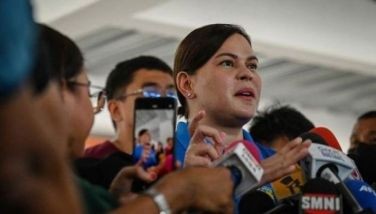Latest update on immigration law
I welcome you all to my first column here at The Freeman. It is such an honor to be a part of one of the leading and most trusted news organizations in the Philippines. I am very grateful to the Editor in Chief, Ms. Quennie Sanchez Bronce, to Mr. Jose "Dodong" Gullas and to the entire Freeman organization for this wonderful opportunity to share my knowledge and experience in US immigration law.
By way of introduction, I am Marco F. G. Tomakin, an immigration attorney based in New York. I am a member of both the New York and Philippine bars. I am a true blooded Cebuano - born and raised here and graduated my nursing degree from Cebu Normal University (then known as Cebu State College) and my law degree at the University of San Jose Recoletos.
My interest in practicing immigration law lies on the fact that I have been an immigrant myself. I experienced the struggles and the challenges of immigrants. I understand the pain and suffering of separation from families, of learning and immersing in a different culture and new way of life, of hoping and praying that someday my own family members would be able to join me here in the States as we go through the legal and administrative procedures of visa processing. I vowed that if ever I have the chance to give back to my country, I would gladly do so in a way that positively affects the lives of my fellow Filipinos. Now that I am fortunate enough to become an attorney, the practice of US immigration law is the best specialty area to fulfill that dream. And to do that here at The Freeman is such a profound privilege.
US immigration law, as complex and dynamic as it is, is also equally compelling and interesting and to an immeasurable extent, life changing. This column seeks not only to inform the readers of the latest updates in US immigration law but more importantly to narrate the stories I personally experienced and handled. Each immigrant experience is unique. Each has its own story to tell. Some ended up like a fairy tale as my clients "lived happily ever after" while some were heart wrenching and thought provoking. I have seen a wide array of cases - from the simple ones to the complex. I may not have seen it all yet, but what I have learned so far is that in all these cases there appears to be a common tie that binds them. And that is the undying and indomitable human spirit of hope, love, and faith in God.
And speaking of hope, let me open this column by informing you of a latest update on immigration law affecting Filipinos. On October 2, 2015, the United States Department of Homeland Security upon which the US Citizenship and Immigration Services is attached, issued an announcement creating a parole program to allow certain family members of Filipino-American World War II veterans to receive parole to come to the United States. This program allows a reunification of the veterans with their families who may have not been able to join them here in the United States because of various reasons such as the veterans' children may have turned 21 years old or have gotten married or there are just no visas available to them yet. This program may enable eligible family members to provide support and care to their aging veteran members who are US citizens or lawful permanent residents.
Let me emphasize that this program is not yet in full effect. The US Department of Homeland Security has not yet issued the implementing rules and regulations for this program. Thus beware of anyone trying to help you apply and asking for a fee from you. Again, this is not yet implemented and DHS is not yet accepting applications at this time. I will provide you with an update as soon as that becomes available.
In future columns, I shall attempt to elucidate you the complexities of US immigration law into simpler explanations and true to life examples. I welcome any questions you may have but please understand that this column is not a substitute for professional legal advice obtained from a US licensed immigration attorney. The information contained herein does not constitute a warranty or guarantee or legal advice regarding a reader's specific immigration case. No attorney-client relationship is and shall be established with any reader.
For any questions or comments, please contact me at [email protected].
- Latest

























